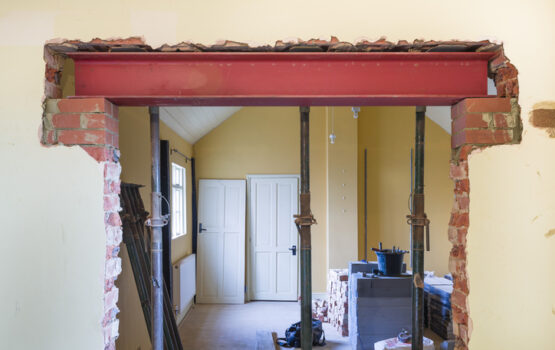In the exhilarating journey of house hunting, emotions often run high. The prospect of finding that perfect home is an exciting endeavor, but it should also come with a cautious and discerning approach.
One of the significant concerns that can emerge during this process is the presence of concrete cancer, a condition that can significantly impact a property’s safety and durability. In this blog, we will thoroughly explore the signs of concrete cancer, the wisdom of purchasing a property afflicted with this issue, and the pivotal role of a pre-purchase building inspection.
At MJ Engineering Projects, we firmly believe that an informed decision is the cornerstone of a secure and happy home.
How Do You Tell If A House Has Concrete Cancer?
Before delving into the complexities of whether to purchase a property with concrete cancer, it’s crucial to understand how to identify this condition. Concrete cancer, also known as concrete spalling or degradation, typically presents itself through visible cues, including:
Cracks:
Cracks on the concrete surface serve as a common indicator of concrete cancer. These cracks can vary in size, from small fissures to more extensive crevices.
Spalling:
Spalling is the process where the concrete surface begins to flake or chip away, revealing the corroded steel reinforcement underneath. It often appears as patches of crumbling or deteriorating concrete.
Rust Stains:
Rust stains on the concrete surface or around embedded steel elements are a clear sign of corrosion, a significant contributor to concrete cancer.
If any of these signs are visible in a property you are considering, it is imperative to proceed with vigilance and seek a professional assessment.
Should You Buy a Property That Shows Signs of Concrete Cancer?
The decision to purchase a property afflicted with concrete cancer is not a straightforward one; it hinges on several factors:
- Extent of Damage: Evaluating the extent of the concrete cancer is pivotal. While minor surface issues may be manageable, extensive and severe damage could signify deeper structural problems that warrant serious consideration.
- Cost Consideration: Financial considerations inevitably play a significant role. Assess the cost of repairs or remediation; substantial concrete cancer repairs can have a notable impact on your overall budget.
- Safety Concerns: If the structural integrity of the property is compromised due to concrete cancer, it can pose safety hazards. In such cases, safety should be the paramount consideration.
Importance of a Pre-Purchase Building Inspection Report
One of the most critical steps in the process of purchasing a home is obtaining a pre-purchase building inspection report. This report is conducted by qualified professionals who thoroughly assess the property’s condition, including any signs of concrete cancer. The importance of this inspection cannot be overstated for several reasons:
What Is Included in a Pre-Purchase Building Inspection?
A pre-purchase building inspection encompasses various aspects of the property, including:
- Structural Integrity: Inspectors scrutinize the overall structural soundness of the building, diligently checking for any signs of concrete cancer or other issues that could compromise safety.
- Walls and Floors: The condition of walls and floors is closely inspected for visible signs of concrete degradation.
- Roof: If there’s access to the roof, its structure and condition are evaluated to ensure there are no vulnerabilities that could lead to water ingress and subsequent concrete cancer.
How To Deal With Concrete Cancer
If a pre-purchase inspection reveals concrete cancer in a property you are interested in, it is not necessarily a deal-breaker, but it demands a measured approach:
Professional Assessment: Seek the expertise of a qualified structural engineer or concrete repair specialist to assess the extent of the concrete cancer and provide recommendations.
Repair Costs: Obtain detailed quotes for the cost of repairs or remediation. This information will be pivotal in negotiating the property’s purchase price.
Negotiation: Utilize the findings from the inspection and the repair cost estimates to engage in negotiations with the seller. This may lead to a more favorable deal that accommodates the necessary repairs.
Conclusion
In the pursuit of your dream home, it is paramount to remain well-informed and vigilant. Recognising concrete cancer in a property you are considering should not necessarily dissuade you, but it does require a meticulous evaluation, professional assessment, and negotiation.
A pre-purchase building inspection stands as an invaluable tool in making an informed decision about the safety and condition of the property.
Contact MJ Engineering Projects today to discuss our concrete spalling / cancer repair services and how we can help you in making the right decision regarding properties with concrete cancer concerns.


